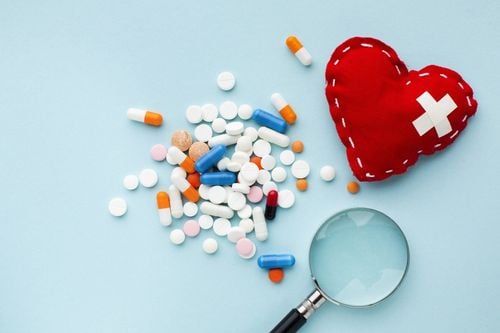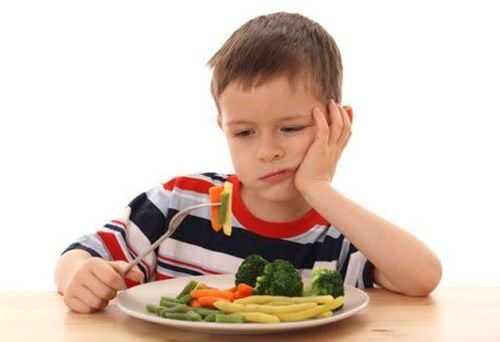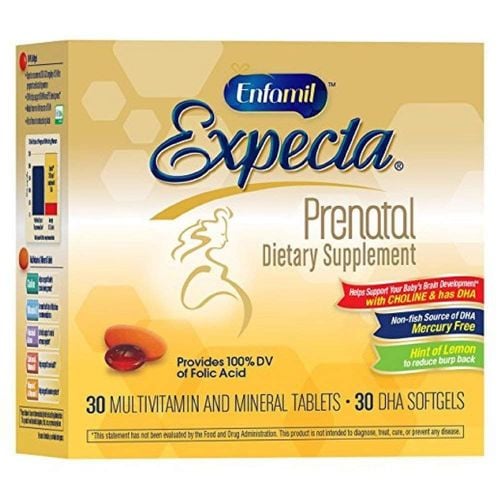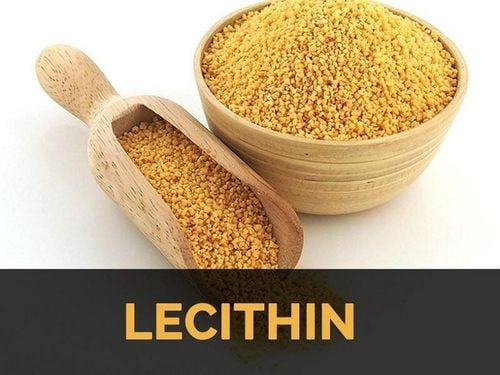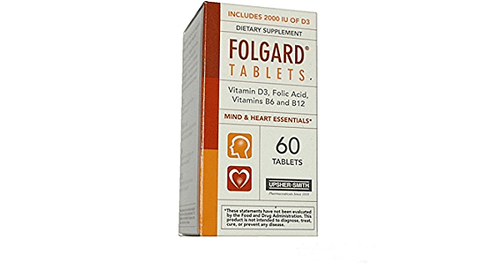This is an automatically translated article.
The article is professionally consulted by Master, Doctor Nguyen Nhu Thu Truc - Obstetrician and Gynecologist - Department of Obstetrics and Gynecology - Vinmec Nha Trang International General HospitalWomen in pregnancy to be able to ensure the best development of the fetus need to build for themselves a reasonable diet. Because when the mother is healthy, the baby will have enough nutrients needed to develop during pregnancy.
1. Calcium
The pregnant mother's diet needs to be provided with an adequate amount of calcium to bring the best benefits to both mother and baby:
For the baby: calcium helps develop bones and teeth. For the mother: Protects bone density, helps prevent high blood pressure during pregnancy. The recommended calcium requirement during pregnancy is 1,000 mg per day, not to exceed 2,500 mg. The mother can provide calcium by choosing to eat calcium-rich foods such as yogurt, cow's milk, orange juice, tofu, cheese....
2. Choline
Increasing the amount of Choline during pregnancy is very good for the health of the mother and baby:
For the baby: Helps prevent neural tube defects and enhances brain development. For mothers: Strengthen bones and prevent high blood pressure. The recommended choline requirement during pregnancy is about 450 mg/day; do not exceed 3,500 mg. The best food sources of Choline are eggs; pork tenderloin; beef; salmon; snow fish; chicken meat; broccoli or cauliflower...
3. Docosahexaenoic Acid (DHA)
DHA is one of the omega-3 fatty acids, which is essential for the human body. Especially for women who are in the period of pregnancy, it is necessary to supplement DHA to ensure the brain development of the fetus.
For babies: Helps enhance brain development and vision. For the mother: May reduce the risk of future heart disease. The recommended need for DHA for pregnant women is about 300mg per day. Foods that provide DHA such as salmon, blue crab, tuna, egg yolk...
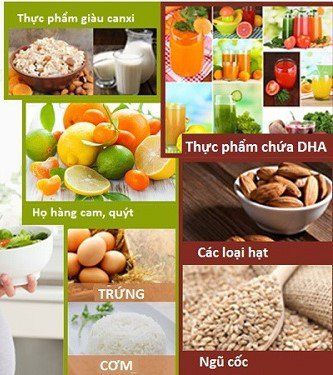
4. Folic Acid
Folic acid is one of the B vitamins (vitamin B9) and is an indispensable element in everyone's diet. On top of that, folic acid is especially important for pregnant women.
For baby: Helps fight birth defects of the spine in the first 30 days of pregnancy, preventing premature miscarriage and premature birth. For mother: Prevent anemia. The recommended requirement for folic acid during pregnancy is 600 mcg per day. Foods with rich sources of folic acid include lentils, spinach, broccoli, cauliflower, eggs, orange juice...
5. Iodine
Iodine is a trace mineral, although it is only needed in small amounts, it is indispensable for the development of the human body. For women who are pregnant, it is necessary to supplement with an adequate amount of iodine for the good development of the fetus.For babies: Necessary for brain and nervous system development, preventing malnutrition, mental retardation and hearing problems. In addition, iodine also plays an important role in preventing miscarriage and stillbirth. For the mother: Helps to keep the thyroid gland healthy. The recommended iodine requirement for pregnant women is about 250 mcg, not to exceed 1,100 mcg per day. Food sources of iodine include sea fish, yogurt, cheese, potatoes, cow's milk, chicken breast, peas...
6. Iron
During pregnancy, the mother's body will need twice as much iron to make more blood for the growing baby. Therefore, it is very necessary for pregnant women to supplement with iron-rich foods.
For baby: Helps prevent premature birth. For mother: Against anemia in pregnant women. The recommended iron requirement during pregnancy is 27 mg per day; not exceed 45 mg. Food sources of iron include cereals, peas, spinach, beef, lamb, chicken...
7. Potassium
During pregnancy, potassium supplementation is extremely important for the health of both mother and baby. Potassium helps control blood pressure, boosts metabolism, regulates heart rate and energy.
Pregnant women should provide 4,700 mg of potassium per day. You can eat foods rich in potassium like white beans, squash, spinach, lentils, sweet potatoes, broccoli, yogurt, orange juice, watermelon, raisins...
8. Vitamin B2
Vitamin B2 is necessary for pregnant women to produce energy, promote lactation and help the fetus develop.
The recommended need for vitamin B2 during pregnancy is 1.4 mg per day. Pregnant women can add the following foods to their daily diet: cereals, yogurt, mushrooms, cow's milk, cheese...
9. Vitamin B6
Helps in the production of proteins for new cells, strengthens the immune system and helps in the formation of red blood cells. Pregnant women should supplement with 1.9 mg of vitamin b6 per day through foods such as cereals, potatoes, beef, pork loin, chicken breast...
10. Vitamin B12
Helps make red blood cells and helps the body convert fats and carbohydrates into energy. In addition, vitamin B12 also prevents neural tube defects for the fetus.
The recommended need for vitamin b12 during pregnancy is 2.6 mcg per day. Foods rich in vitamin b12 include salmon, tuna, beef, wheat, and whole grains.
11. Vitamin C
Pregnant women should take vitamin C supplements regularly to make it easier for your body to absorb iron from food; strengthen bones and teeth; strengthen immunity; keep blood vessels and red blood cells healthy.
Pregnant women should supplement vitamin C every day about 85 mg, not to exceed 2,000 mg. Food sources rich in vitamin C such as bell peppers, orange juice, strawberries, grapefruit juice, broccoli, tomatoes.
12. EASY Vitamins
Vitamin D is a fat-soluble vitamin, which is essential for women during pregnancy.
For babies: Helps build strong bones and teeth. For mothers: Helps the body absorb calcium from food, making bones and teeth stronger. The recommended need for vitamin D during pregnancy is 600 IU; Do not exceed 4,000 IU. Vitamin D is commonly found in dairy products, orange juice, cereals and egg yolks.
13. Zinc
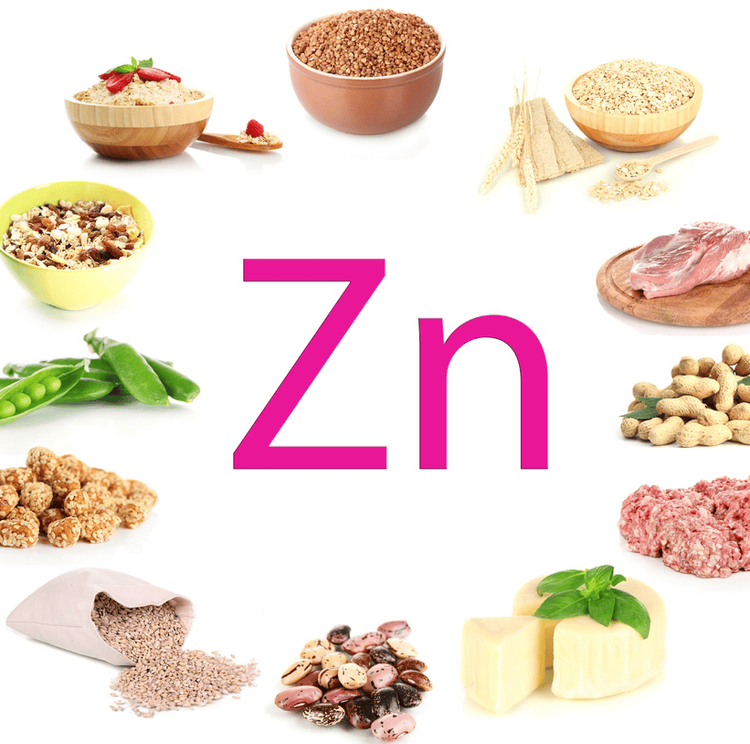
For babies: Helps brain development. For the mother: Zinc is needed for cell growth and repair as well as for energy production. During pregnancy, pregnant women need to supplement about 11 mg of zinc per day; do not exceed 40 mg. You can eat the following foods to supplement zinc: Oysters, crabs, whole grains, beef, pork, white beans, yogurt.
If you have abnormal symptoms during pregnancy, you should be examined and consulted with a specialist at reputable medical facilities.
Please dial HOTLINE for more information or register for an appointment HERE. Download MyVinmec app to make appointments faster and to manage your bookings easily.
Articles by Webmd source.





